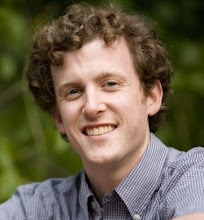What's really provocative about the article, however, is the contention of economist Susan Lee that theologians say too much and know too little about economics. (Lee holds a doctorate in economic history from Columbia as well as an M.A. from Union Theological Seminary.) In short, she says that theologians want to help the poor by focusing on the equitable distribution of wealth, whereas economists want to help the poor by firing the engines of free trade and "growing the pie," (or, "make the pie higher"). I can't decide if this is a kind of capitalist benevolence -- "We're going to help everybody this way" -- or a veiled threat: "If you redistribute wealth, we'll ALL end up starving." I don't have a Ph.D. in economics, which makes it hard to mount a defense of theological economics that doesn't sound like The Dude: "Yeah well, that's just, ya know, like, your opinion, man."
12 February 2010
Do theologians understand economics?
My friend Tommy sent along this link to an article from the blog of the American Enterprise Institute. At AEI, they're free marketeers through and through, so it's not surprising that the writer would be critical of any redistributive economic plan, whether theologically motivated or not.
Subscribe to:
Post Comments (Atom)

1 comment:
Economists are the worst with the "trust us on this, we're the experts and you don't understand." And sure, it's obviously complicated stuff, more esoteric than most fields. But this line always seems a bit silly to me: can you and I talk about evolution without being evolutionary biologists? What if we're science PhDs, but in a different area? Or just have masters degrees? It's really difficult to talk about expertise as a y/n question, and how do you decide who gets to have valid opinions?
More importantly, there's a bait and switch here: because the market fundamentalists dominate the econ field, they like to talk about their ideology as if it's not an ideology at all but simply an inevitable part of an economist's education, more like a class in Hebrew grammar than one in, say, Marxist ethics... The reality is that there are plenty of economists who, while certainly they understand economics better than non-economists (why does this even need to be said?), ultimately are at least as interested in the shared part of "shared prosperity" as the prosperity part. Unfortunately, even when the Dems are in power, most of then are banished to colleges and think tanks...
Post a Comment